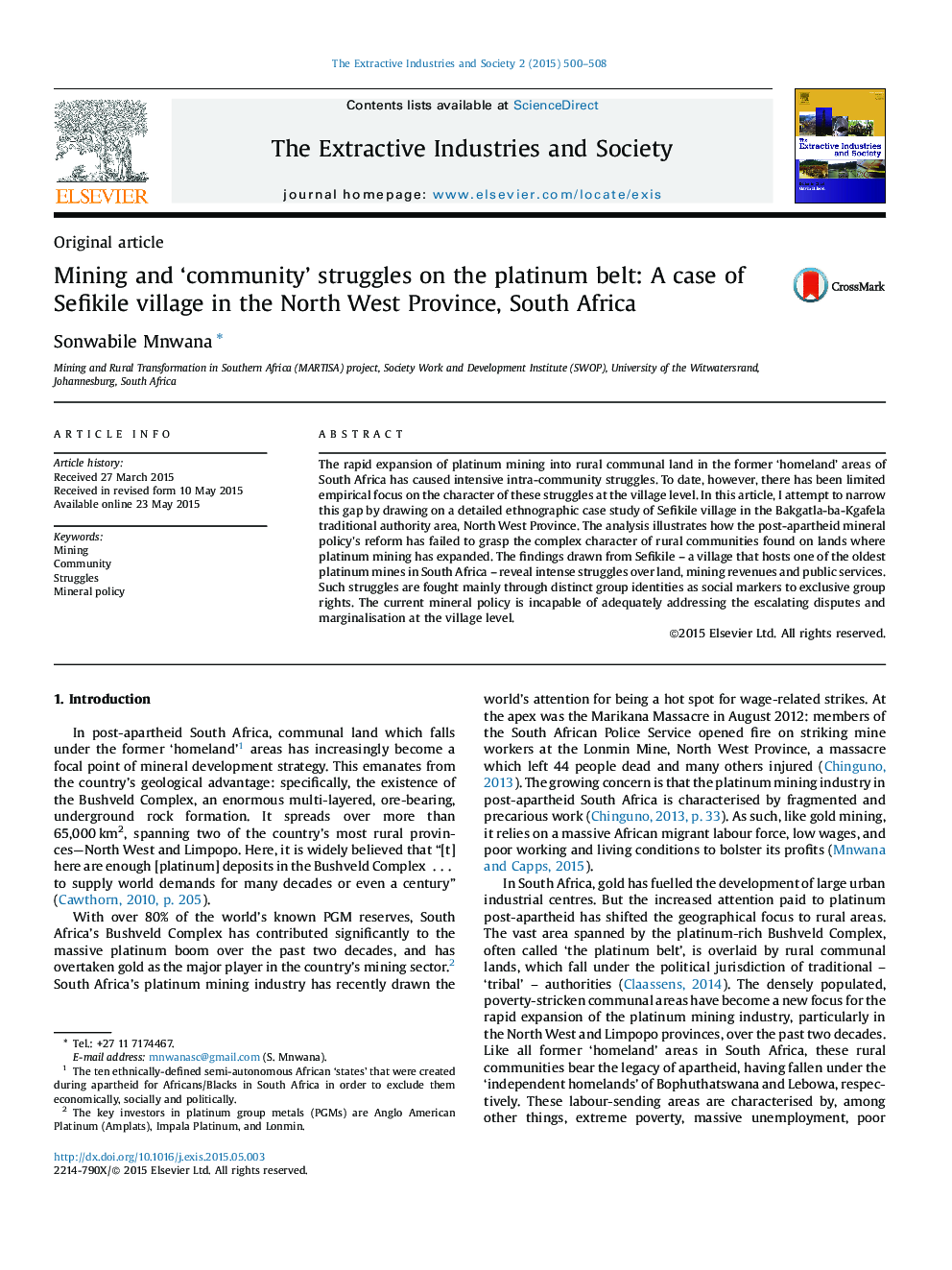| Article ID | Journal | Published Year | Pages | File Type |
|---|---|---|---|---|
| 1047450 | The Extractive Industries and Society | 2015 | 9 Pages |
•The rapid expansion of platinum mining into rural communal land in the former ‘homeland’ areas in South Africa generates intense intra-community struggles.•Local struggles are fought mainly through group identities as social markers to exclusive group rights.•There is limited empirical focus on the character of these struggles at village level.•The ethnographic case study of Sefikile village demonstrates that the post-apartheid mineral’s policy reform has failed to grasp the complex character of rural communities on whose land platinum mining expands.•South Africa’s mineral policy cannot adequately address the escalating disputes and grassroots marginalisation at village level.
The rapid expansion of platinum mining into rural communal land in the former ‘homeland’ areas of South Africa has caused intensive intra-community struggles. To date, however, there has been limited empirical focus on the character of these struggles at the village level. In this article, I attempt to narrow this gap by drawing on a detailed ethnographic case study of Sefikile village in the Bakgatla-ba-Kgafela traditional authority area, North West Province. The analysis illustrates how the post-apartheid mineral policy's reform has failed to grasp the complex character of rural communities found on lands where platinum mining has expanded. The findings drawn from Sefikile – a village that hosts one of the oldest platinum mines in South Africa – reveal intense struggles over land, mining revenues and public services. Such struggles are fought mainly through distinct group identities as social markers to exclusive group rights. The current mineral policy is incapable of adequately addressing the escalating disputes and marginalisation at the village level.
